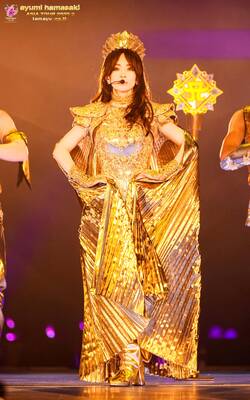Chinese practice
僧多粥少
(seng1 duo1 zhou1 shao3)

Photo: Paul Cooper, Taipei Times
照片:台北時報記者古德謙攝
Too many monks and not enough gruel
今日的成語「僧多粥少」源出於明末清初長篇小說「明醒世姻緣傳」,該書作者為西周生(筆名)。「僧」就是和尚,「粥」是和尚常吃的食物,所以「僧多粥少」意即和尚太多,而供應和尚吃的粥太少。此成語可以比喻需求量大但資源有限,以致不夠分配,供不應求。
英文中也有一些類似的說法,如諺語 there’s not enough to go around,或如片語thinly spread,與僧多粥少的用法雷同。(台北時報記者古德謙整理)
去年,資源還要分配給這個組織之外的眾多關係組織,實乃僧多粥少。
(Last year, resources had to be distributed among a great many entities related to this organization, and there was simply not enough to go around.)
大學畢業生滿街跑,企業卻無法提供足夠的職缺,僧多粥少使得失業率大幅攀升。
(There is a glut of university graduates, but companies simply cannot provide enough openings. The shortage of jobs has sent the unemployment rate soaring.)
英文練習
not enough to go around; thinly spread
Today’s Chinese idiom — 僧多粥少 — originates from the late Ming or early Qing dynasty novel The Story of a Marital Fate to Awaken the World by Xizhou Sheng (a pen name). The word「僧」means monk; 「粥」is gruel, or congee, a staple food for monks. The idiom, then, means that there are too many monks to feed, and not enough food to feed them all. This idiom can be used as a metaphor for situations in which demand is high, resources are limited, and there is not enough to go around.
There are a number of English phrases and adjectival phrases that do much the same job, such as “there’s not enough to go around,” “demand exceeds supply” and “thinly spread.”
(Paul Cooper, Taipei Times)
We have arrived at this decision to avoid spreading our resources too thinly.
(我們這麼決定是為了避免讓資源分配過於分散。)
The UN is sending relief supplies to the affected areas, but resources are limited and it is concerned there won’t be enough food or blankets to go around.
(聯合國正送出救災物資,但資源有限,恐怕無法人人都分配到食物和毛毯。)

A: Apart from the musical Sunset Boulevard, Japanese pop diva Ayumi Hamasaki is also touring Taiwan after a 17-year wait. She’s holding two concerts starting tonight. B: Ayu has the most No. 1 hits of any Japanese solo artist, with 33 total. A: “Time” magazine even crowned her as “The Empress of Pop.” B: She staged shows in Taipei back in 2007 and 2008, causing an “Ayu fever” across Taiwan. A: Unfortunately, the singer has been deaf in her left ear since 2008, and is gradually losing hearing in her right ear. I’m so excited to see her singing in Taipei again. A: 除了音樂劇《日落大道》,日本歌后濱崎步睽違17年,今晚起在台北熱唱兩場。

Denmark’s state-run postal service, PostNord, announced that it would cease letter deliveries at the end of 2025 due to the impact of digitalization. As 95% of its residents now use the Digital Post service, Denmark has seen a 90% decline in letter volumes since 2000, from 1.4 billion to 110 million last year. On top of that, the Postal Act of 2024 removes the government’s obligation to provide universal mail service and puts an end to postal exemptions from value-added tax, raising the cost of a single letter to 29 Danish krone (US$4.20). As a result, PostNord is switching

Bilingual Story is a fictionalized account. 雙語故事部分內容純屬虛構。 “One DA-BEI... WU LONG... NAI?” Yujing smiled as the foreigner struggled to order. He looked like an embarrassed puppy. She repeated the order in Chinese, then English: “Oolong milk tea, large size. Half sweet, no ice?” she said gently. He beamed — the kind of full-face, sunshine smile that Latinos are famous for. “Yes! That! You are... lo maximo… the best!” After he left, Lily nudged her. “Nice save. You’re getting the hang of it.” Yujing had taken this summer job at the bubble tea shop to build confidence and get work

Although sending you an SMS (Short Message Service) verification code provides some security, many apps now use code-generating apps and two-factor authentication instead. But more recently, passkeys now use a biometric approach to logging in. Biometrics can offer an even more secure alternative. Following this trend, Google is reportedly planning to replace SMS verification codes with “QR code” scanning. SMS codes are currently used to verify user identity and prevent fraudsters from creating fake Gmail accounts to distribute spam. However, these codes present several challenges. They can be phished through suspicious links, and users may not always have access